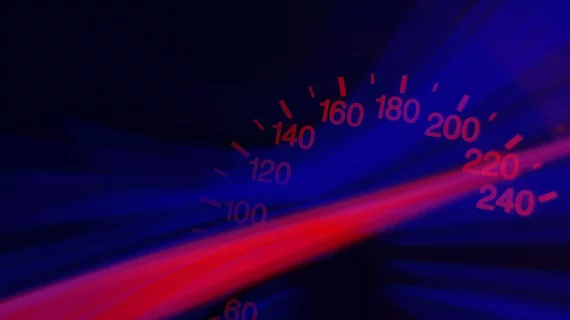FDA gives nod to MRI acceleration software equipped with AI
A medical imaging OEM has been cleared to market MRI image reconstruction software that, according to the company, sacrifices nothing in image quality despite allowing patients to be scanned up to three times faster than conventional methods.
Amsterdam-based Royal Philips announced the development July 12 ahead of the European College of Radiology’s annual meeting July 13 to 17 in Vienna.
Called SmartSpeed, the AI-powered offering increases resolution by as much as 65% and is compatible with 97% of clinical protocols, including quantitative and diffusion-weighted imaging of the brain, liver, heart and musculoskeletal system, according to a news release.
Philips says the software is designed to complement an established Philips MRI “acceleration engine” called Compressed Sense.
The release quotes an MSK imaging expert, radiologist Grischa Bratke, MD, of the University Hospital of Cologne in Germany, who calls the product “the new benchmark among acceleration techniques for us.”
Philips MRI executive Arjen Radder, PhD, says the company took healthcare’s Quadruple Aim as a starting point to develop all its new and pipelined AI-powered software.
Philips notes that SmartSpeed is not yet approved for European sales.
Full news release here.
More Coverage of Philips:
Scholarly POCUS judges impressed by handheld models from GE, Philips, EchoNous
Philips picks partner for multispecialty management of lung cancer
GE, Philips, Siemens pass academic test on low-dose DECT
Philips sees sales fall $400M below expectations amid global supply chain pressures

